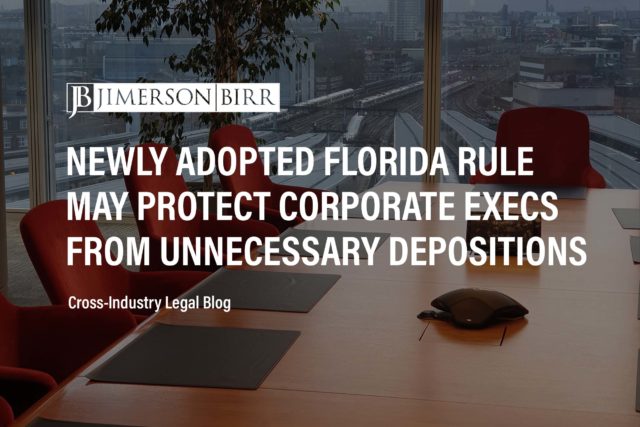How does institutional compliance with federal and state laws affect schools?
Institutional compliance with federal and state laws is of paramount importance for schools, as it directly impacts their operations, funding, reputation, and legal standing. Schools must adhere to a wide range of federal and state laws and regulations that govern various aspects of education, including civil rights, student privacy, special education, safety, and accountability. Failure to comply with these laws can result in serious consequences, including financial penalties, loss of funding, litigation, reputational damage, and even loss of accreditation.
Schools that demonstrate a commitment to compliance with legal requirements build trust and confidence among students, parents, educators, and community members, enhancing their reputation as responsible stewards of public resources and advocates for student success.
Need help regarding institutional compliance with federal and state laws? Schedule your consultation today with a top education attorney.
In Florida, which laws apply to institutional compliance?
In Florida, schools are subject to a variety of laws and regulations at both the federal and state levels. Some key laws and regulations that govern institutional compliance include:
- Every Student Succeeds Act: This federal law governs K-12 education policy and funding, emphasizing accountability, equity, and academic achievement.
- Title IX of the Education Amendments of 1972: Title IX prohibits discrimination on the basis of sex in education programs and activities that receive federal financial assistance.
- Individuals with Disabilities Education Act (IDEA): IDEA is a federal law that governs the provision of special education and related services to students with disabilities. In Florida, schools must comply with IDEA requirements related to the identification, evaluation, and provision of services for students with disabilities to ensure equal access to education and support their academic and developmental needs.
- Florida Education Code, Title XLVII of the Florida Statutes: This comprehensive set of state laws outlines various aspects of education policy and governance, including curriculum requirements, student rights, and school finance
What are common issues regarding institutional compliance that lead to litigation?
Several common issues regarding institutional compliance with federal and state laws can lead to litigation in the education sector. These issues often revolve around:
- Discrimination and Civil Rights Violations: Allegations of discrimination based on race, color, national origin, sex, disability, or other protected characteristics can lead to litigation. This may include claims of unequal treatment, harassment, or denial of educational opportunities based on prohibited grounds.
- Special Education Compliance: Schools must provide appropriate services and accommodations to students with disabilities under federal laws such as the Individuals with Disabilities Education Act (IDEA). Litigation may arise from disputes over the adequacy of Individualized Education Programs (IEPs), placement decisions, or the provision of related services.
- Title IX Violations: Title IX prohibits sex discrimination in education programs and activities receiving federal financial assistance. Litigation may result from allegations of sexual harassment, gender-based violence, or disparities in athletic opportunities and resources.
- Safety and Security Concerns: Failure to comply with safety and security regulations, including building codes, emergency preparedness protocols, and measures to prevent bullying and harassment, can lead to litigation in cases of accidents, injuries, or incidents of violence on school premises.
- Employment Practices: Schools may face litigation related to employment practices, including allegations of wrongful termination, discrimination, harassment, or violations of wage and hour laws. This can involve disputes with faculty, staff, or administrators.
- Student Discipline and Due Process: Schools must follow fair and equitable procedures when disciplining students, including providing notice, hearings, and opportunities for appeal. Litigation may arise from allegations of due process violations, disproportionate disciplinary actions, or wrongful expulsion or suspension.
- Privacy and Data Security: Schools must comply with laws protecting student privacy, such as the Family Educational Rights and Privacy Act (FERPA). Litigation may occur if there are breaches of sensitive student information or unauthorized disclosures of educational records.
- Curriculum and Instructional Issues: Challenges to curriculum content, teaching materials, or instructional practices can lead to litigation, particularly in cases where there are disagreements over religious, political, or controversial topics.
To determine whether your unique situation may necessitate litigation, please contact our office to set up your initial consultation.
What steps should schools take to minimize the risk of litigation over institutional compliance?
To minimize the risk of litigation over institutional compliance with federal and state laws, schools should take the following steps:
- Develop Comprehensive Policies and Procedures: Establish clear and comprehensive policies and procedures that outline the school’s commitments to compliance with relevant federal and state laws. These policies should cover areas such as nondiscrimination, special education, safety and security, student discipline, privacy protection, and employment practices.
- Provide Ongoing Training and Education: Ensure that all faculty, staff, and administrators receive regular training and education on their legal obligations and responsibilities under federal and state laws. Training should cover topics such as discrimination prevention, special education requirements, student discipline procedures, safety protocols, privacy laws, and employment practices.
- Conduct Regular Audits and Assessments: Conduct regular audits and assessments of the school’s policies, procedures, and practices to identify areas of potential non-compliance or risk. This includes reviewing policies for alignment with current laws and regulations, evaluating the implementation of procedures, and assessing the effectiveness of compliance efforts.
- Establish a Compliance Oversight Committee: Create a compliance oversight committee or designate individuals within the school administration to oversee compliance efforts. This committee should be responsible for monitoring compliance with federal and state laws, addressing compliance issues as they arise, and ensuring that corrective actions are taken when necessary.
- Maintain Accurate Recordkeeping: Establish systems for maintaining accurate and up-to-date records related to compliance efforts, including documentation of policies, training activities, audits, assessments, complaints, investigations, and corrective actions. Proper recordkeeping can help demonstrate the school’s commitment to compliance and provide evidence of efforts to address any issues that may arise.
- Respond Promptly to Complaints and Concerns: Develop procedures for promptly addressing and investigating complaints or concerns related to compliance with federal and state laws. Ensure that there are channels for reporting violations or potential violations, and that complaints are taken seriously, investigated thoroughly, and addressed in a timely manner.
- Seek Legal Guidance as Needed: Consult with legal counsel or experts in education law to ensure that the school’s policies, procedures, and practices are in compliance with relevant federal and state laws. Legal guidance can help identify potential areas of risk, interpret complex regulations, and provide advice on how to mitigate legal exposure.
- Stay Informed and Updated: Stay informed about changes to federal and state laws and regulations that may impact institutional compliance. Regularly monitor updates from relevant government agencies, professional associations, and legal sources, and be proactive in updating policies and practices to reflect any changes in the legal landscape.
Frequently Asked Questions
How long should schools review and update their policies and procedures to ensure compliance?
Schools should review and update their policies and procedures on a regular basis to ensure they remain current and compliant with changes in federal and state laws and regulations. This may involve annual reviews or more frequent updates as needed.
Where can schools find resources and support for ensuring compliance with federal and state laws?
Schools can find resources and support from government agencies such as the U.S. Department of Education and state departments of education, professional associations for educators, legal experts specializing in education law, and online resources such as guides, toolkits, and training materials.
What are the consequences of non-compliance with federal and state laws?
Consequences of non-compliance may include legal penalties such as fines, loss of funding, or lawsuits, damage to the school’s reputation, loss of accreditation, compromised student and staff well-being, and disruption to the learning environment.
Have more questions about institutional compliance with federal and state laws?
Crucially, this overview of institutional compliance with federal and state laws does not begin to cover all the laws implicated by this issue or the factors that may compel the application of such laws. Every case is unique, and the laws can produce different outcomes depending on the individual circumstances.
Jimerson Birr attorneys guide our clients to help make informed decisions while ensuring their rights are respected and protected. Our lawyers are highly trained and experienced in the nuances of the law, so they can accurately interpret statutes and case law and holistically prepare individuals or companies for their legal endeavors. Through this intense personal investment and advocacy, our lawyers will help resolve the issue’s complicated legal problems efficiently and effectively.
Having a Jimerson Birr attorney on your side means securing a team of seasoned, multi-dimensional, cross-functional legal professionals. Whether it is a transaction, an operational issue, a regulatory challenge, or a contested legal predicament that may require court intervention, we remain tireless advocates at every step. Being a value-added law firm means putting the client at the forefront of everything we do. We use our experience to help our clients navigate even the most complex problems and come out the other side triumphant.
If you want to understand your case, the merits of your claim or defense, potential monetary awards, or the amount of exposure you face, you should speak with a qualified Jimerson Birr lawyer. Our experienced team of attorneys is here to help. Call Jimerson Birr at (904) 389-0050 or use the contact form to schedule a consultation.

We live by our 7 Superior Service Commitments
- Conferring Client-Defined Value
- Efficient and Cost-Effective
- Accessibility
- Delivering an Experience While Delivering Results
- Meaningful and Enduring Partnership
- Exceptional Communication Based Upon Listening
- Accountability to Goals










